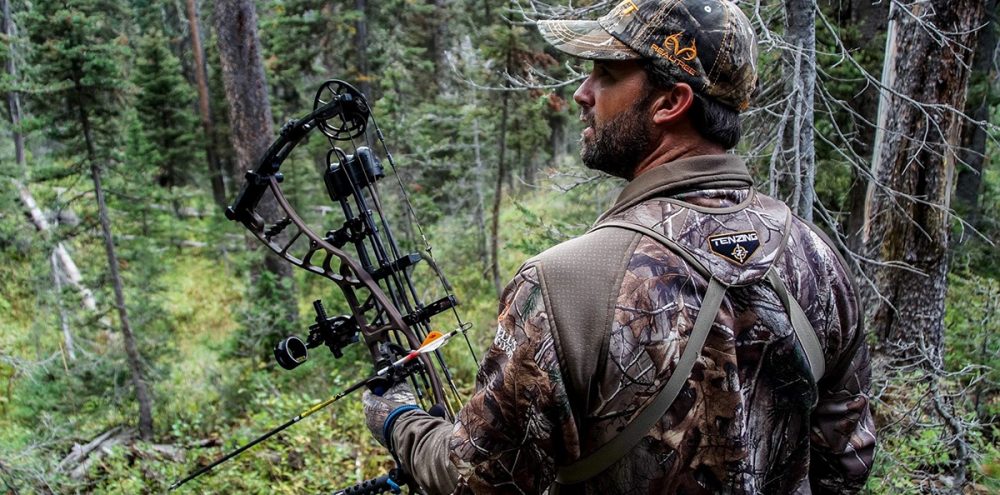Spring hunting offers unique opportunities—lush forests, active game, and milder temperatures—making it an ideal time for many hunters to get outdoors. However, the challenges of hunting in the spring season, particularly with changing weather and dense foliage, can also lead to unexpected situations. One of the most critical skills every hunter should possess is the ability to survive if they get lost in the woods.
Getting lost is more common than you might think, even for experienced hunters. So, understanding what to do if you find yourself disoriented or separated from your group is essential. In this article, we’ll explore spring survival skills and provide practical tips to help you stay safe until help arrives or you find your way out.
1. Stay Calm and Assess the Situation
The first and most important rule when you realize you’re lost is to stay calm. Panicking will only cloud your judgment and make it harder to think clearly. Take a few deep breaths, sit down if necessary, and assess your surroundings.
- Stop and Think: The first impulse when you realize you’re lost might be to start moving in any direction, but that could lead to more confusion. Sit still for a moment and try to recollect how you got there. Identify landmarks, trails, or even tracks you might have followed earlier.
- Take a Mental Inventory: Assess your gear and surroundings. Do you have a map, compass, or GPS? What time of day is it? What’s the weather like? Knowing your tools and the environment around you will help you make a plan.
2. Use Your Map and Compass (Or GPS)
Being equipped with a map, compass, or GPS is one of the best ways to avoid or get out of a lost situation.
- Compass: If you have a compass, you can navigate by taking bearings to get back on track. Try to locate known landmarks, trails, or even your vehicle to reorient yourself. If you have a map, use it in conjunction with the compass to chart a course for known areas, such as a road or trail.
- GPS Devices: Many hunters rely on GPS devices, apps, or even smartphones to mark waypoints and help navigate. If you have a GPS, try to use it to backtrack or find your current position. Some GPS devices also allow you to mark a “home” location, such as your camp or vehicle, making it easier to find your way back.
- Know Your Coordinates: If you’re lost, your GPS coordinates can be invaluable for search and rescue teams. If you have cell service, call for help and provide your exact location. This can be a life-saving move.
3. Create an Emergency Shelter
In the spring, temperatures can vary significantly, especially in the early mornings and evenings. If the weather takes a turn or you realize you’re not going to make it out before dark, finding or creating shelter is your next priority.
- Find Natural Shelters: If you can, try to find a natural shelter like a large tree, a dense thicket, or a rock outcrop. These areas will offer some protection from the elements and keep you out of the wind.
- Build a Shelter: If no natural shelter is available, it’s time to build one. Using your surroundings, gather branches, leaves, and foliage to create a temporary shelter. Lean branches against a tree, or use fallen logs and leaves for insulation. Ensure your shelter is large enough to protect you from the elements.
- Insulate Your Shelter: Even in spring, temperatures can drop quickly, particularly at night. Insulate your shelter by layering leaves, pine needles, or any available natural material to keep the cold out.
4. Signal for Help
If you’re lost and it’s clear that you won’t be able to find your way out easily, signaling for help is essential. There are several ways to make yourself visible to rescuers, whether they are hunting partners or search teams.
- Whistle: One of the easiest and most effective ways to signal for help is with a whistle. A whistle can be heard over long distances, especially in forested or rugged terrain. Blow three short bursts, which is a universal distress signal. Repeat periodically, but listen carefully in case rescuers are responding.
- Mirror or Flashlight: If you have a mirror, use it to reflect the sun’s rays to signal nearby hikers, hunters, or search teams. Similarly, if you have a flashlight or headlamp, use it to signal at night with short bursts of light.
- Create a Signal Fire: If you have fire-starting materials, a signal fire is an excellent way to draw attention. The best way to do this is by building a fire with wet wood, which creates smoke visible from a great distance. Make sure your fire is safe, and don’t let it get out of control.
- Bright Clothing or Gear: If you have bright-colored gear, jackets, or a hat, use them to create a visual marker. Tie them to a tree branch or lay them out where they can be seen from a distance.
5. Conserve Energy and Stay Hydrated
Survival situations require you to keep your energy up. Avoid unnecessary exertion, as this can dehydrate you and wear you out.
- Water: If you have water with you, ration it wisely. If you don’t, find a water source as soon as possible. Spring is often when streams and rivers are flowing heavily, so follow any signs of water or listen for flowing rivers and creeks. But always be cautious about drinking untreated water, as it may contain bacteria or parasites. If possible, use a filtration system or boil the water before drinking.
- Food: While it’s important to stay hydrated, food can also help keep your energy up. If you’ve brought snacks, eat small portions throughout the day to avoid running low on energy. Avoid hunting for food unless you are confident in your ability to identify edible plants or animals.
6. Backtrack if You Can
If you’re not too far from a familiar trail or your base camp, backtracking could be your best bet. Look for landmarks that you remember from earlier in the day. Check your tracks, look for broken branches or disturbances in the leaves that you might have made while walking. Take it slow, retracing your steps in a systematic manner, and be careful not to get further lost.
7. Stay Put if Help is On the Way
If you’ve called for help, or if you think someone knows you’re missing, stay put. Wandering aimlessly increases the chance of further disorientation. Focus on staying warm, hydrated, and safe while waiting for rescuers or your hunting party to find you.
Conclusion
While getting lost is a frightening prospect, staying calm and following these essential survival skills will increase your chances of making it through a challenging situation. With the right tools, knowledge, and mindset, you can turn an unsettling experience into a successful return to safety. Remember, preparation is key—carrying the right gear, understanding your surroundings, and knowing how to react in an emergency are all part of being a responsible and safe hunter. By mastering these skills, you can ensure that your spring hunting adventures are both exciting and safe.


